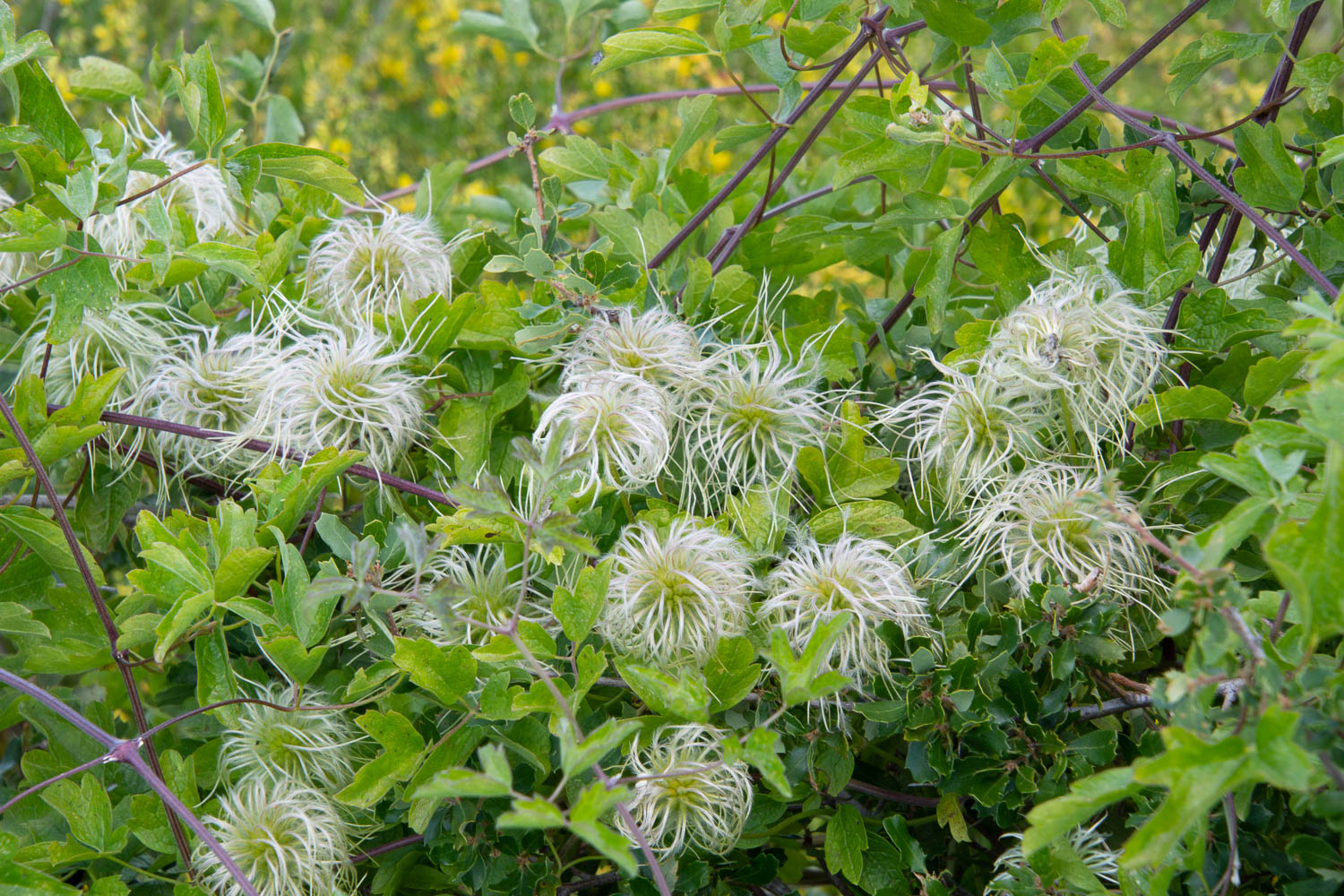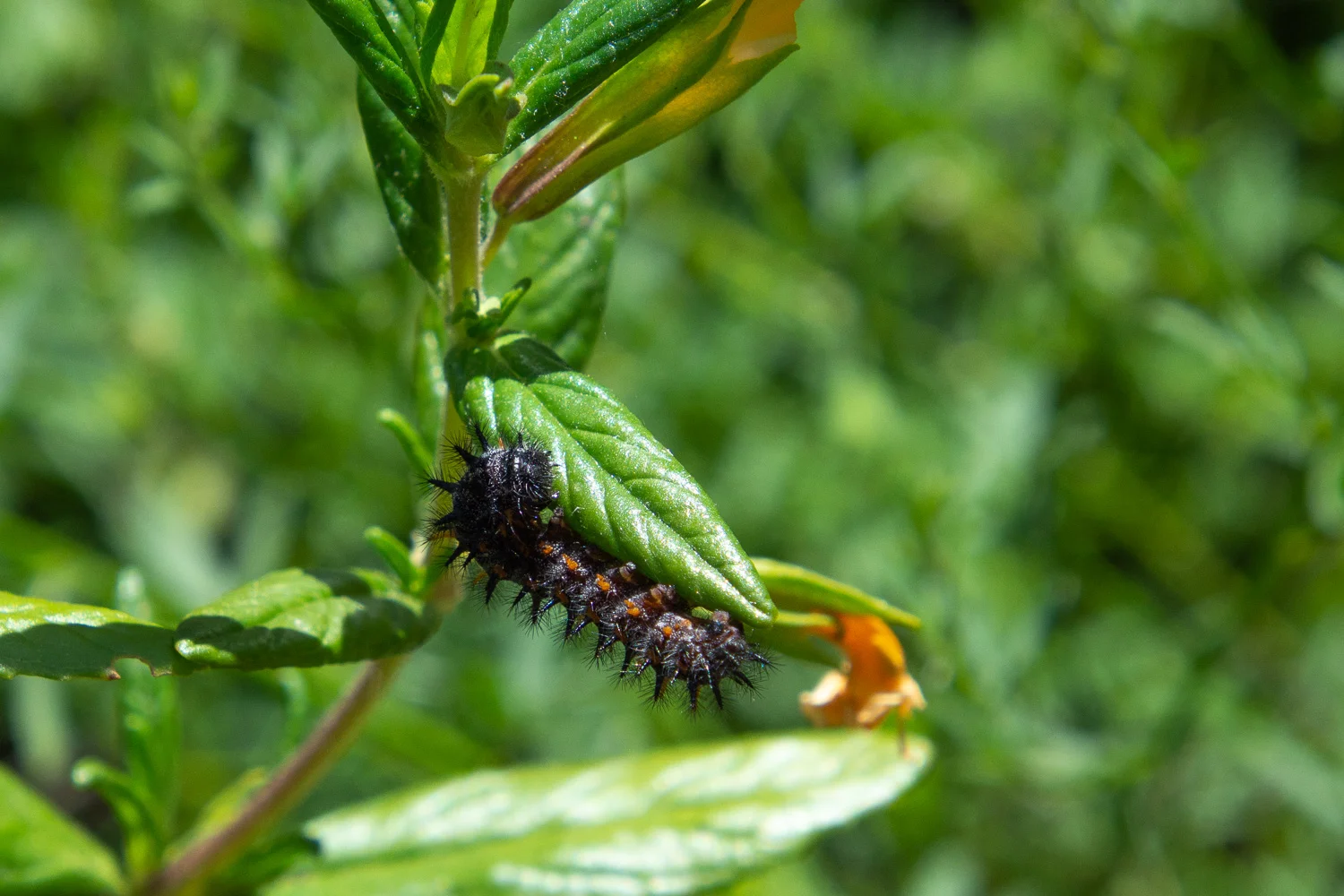Glorious Day at Stebbins Cold Canyon Reserve
/Last week we took a day to hike at Stebbins Cold Canyon. I almost didn’t bring my camera, thinking that wildflower season was over and everything would be dried out. I couldn’t have been more wrong. We drove west from Winters and the grassy hills were dry and yellow but we noticed how bright green the higher rocky hills looked in some places between the remnants of brush that burned in the 8000 acre Wragg Fire in 2015.
Warning: This post is very flower photo heavy. I spent a ridiculous amount of time trying to ID these flowers from photos and I won’t guarantee that they are all correct. I found some by looking at other people’s blog posts and maybe they don’t know anymore than I do. After all, anyone can write a blog. However I did look them up further and checked the species against the Vascular Plant List for Stebbins Canyon. There are a few that I have not ID’d because I really do have to move on and do some other things. Feel free to send me info.
We had just got across the road from the parking area and saw this incredible flower. Elegant Clarkia, Clarkia unguiculata.
Virgins Bower, Clematis virginiana
Chaparral False Bindweed, Calystegia occidentalis. One thing that I learned in looking up all of these plants is that they are CA natives. I assumed that most were but I looked at this as the field bindweed (Convolvulus arvensis) that is a major problem in ag fields. (I read that the roots of field bindweed can go down 9 feet and the plant may last 20 years.) I was glad to find out that this is not that plant at all. By the way, notice the insect. This area was teeming with life everywhere.
Foothill Pentemon, Pentstemon heterophyllis. This flower is almost neon.
Here is where I feel like the hike actually begins. I had already stopped to take so many flower photos that I thought I’d better step up my pace so Dan wouldn’t want to throw my camera in the creek. I told him to go ahead and I’d catch up. We took the trail “backwards” this time. Usually we take the lower trail that follows the canyon. Then it goes up through the woods to come out on top in the chaparral. You walk along the rocky ridge until you head back down. Those parts of the trail are in full sun. We started by heading up away from the creek. I was amazed by the diversity of plants we found blooming.
Twining Snake Lily. Dichelostemma volubile. We saw this one throughout the area. What an amazing plant! It has a long red stem that wraps itself around whatever is handy.
These are two that I didn’t identify.
Purple Nightshade, Solanum xantii.
The Twining Snake Lily is a purple spot in the poison oak. There were butterflies everywhere as well. I think this is a checkerspot butterfly, but do you know how many variations of those butterflies there are?
Butterfly in what I think is Deerweed, Acmispon glaber.
Where there are butterflies it makes sense that there are caterpillars.
I didn’t even try to ID the yellow composites. There are so many choices.
This is what the trail looked like. I am used to this being hot and dry. You can see the trees that burned in 2015 but everything else is bright green. At first I thought of Scotch Broom when I saw that yellow flowering plant but it didn’t seem quite right, and Scotch Broom is a non-native invasive species. Now I think that is Deerweed, Acmispon glaber. Maybe after spending all this time on this I’ll remember. (But that’s another reason that I do this blog—I’ll be able to come back to it when I forget.)
Yerba Santa, Eriodictyon californicum. This is the plant in the foreground of the previous photo.
Another butterfly on Yerba Santa. (Variable Checkerspot — Thanks, Lotus!)
I’d love to know what this flower is. You can see the progression of development. I didn’t see anything further along than the third photo. That white part in the first and second photos looks milky and wet, but it is actually the consistency of cheese, but just a little gooey.
Notice how the south facing slopes are grassy and now yellow. The north facing slopes are brushy. It’s that bright green that we noticed while driving up here. Now I think it’s that Deerweed that is in the foreground of this photo. The white flower is Chamise, Adenostoma fasciculatum, a species that is one of the most widespread in the California chaparral.
Chamise flowers.
Walking along the trail we saw these holes in one area.
Then we realized that there were bees buzzing around them. I read up on ground nesting bees. It seems that they are mostly solitary with one bee in each nest, but the nests may be clustered together. The exception to the solitary life is mating time. We saw clusters of bees roiling and buzzing.
I’m only half way through my photos and now it’s past midnight. This is To Be Continued.





























